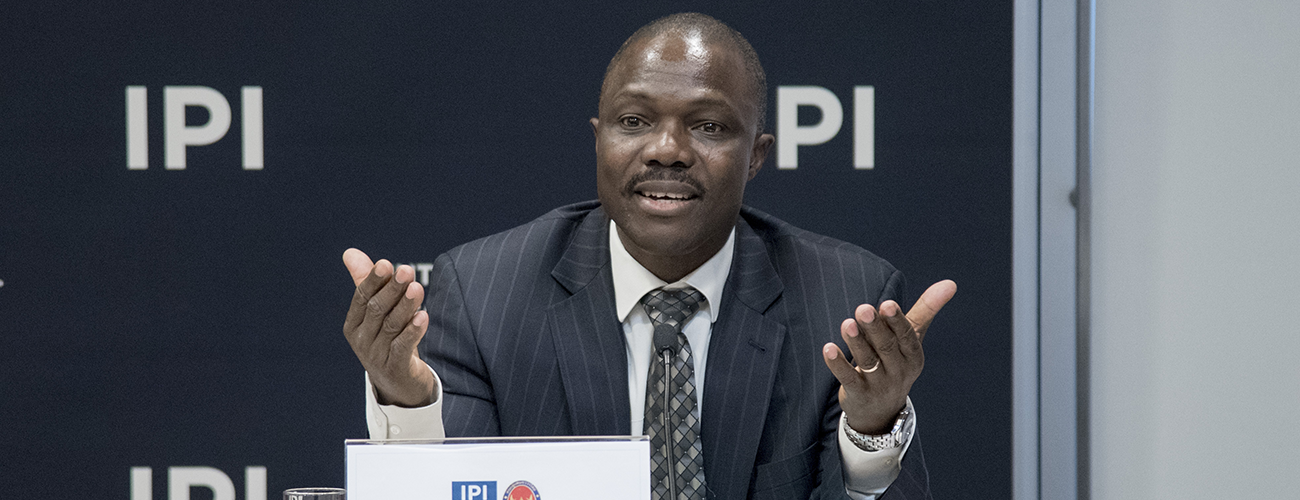Ayodele Odusola, UNDP’s Chief Economist for Africa, made this observation at an IPI policy forum, co-sponsored by the Permanent Mission of the Kingdom of Thailand to the United Nations, on March 15th, 2017 on “Peace and the Gender Gap: Women’s Economic Empowerment in Fragile Communities.”
“Africa loses $95 billion a year by not fully engaging women in economic activity,” he said, noting that that figure was six percent of the gross domestic product of the entire continent.
“On the basis of this,” he reasoned, “we realize that women empowerment is not only the right issue, it’s the right economics.”
Linking this phenomenon to peace, Andrea Ó Súilleabháin, IPI Research Fellow and moderator of the event, said, “Economic empowerment gives women the resources, status, and networks required to enter the public sphere, to launch political campaigns or engage in civic activism. Gender equality is closely linked to peacefulness and violence prevention, and lays the foundation for sustainable development. In short, an investment in inclusion is an investment in peace.”
Saisuree Chutikul, Senior Adviser, National Committee to Draft and Review Thailand’s National Action Plan on Women, Peace, and Security, described the steps that Thailand had taken to empower women through its national action plan (NAP). The Thai NAP focuses on five key areas: prevention, rehabilitation for victims of violence, capacity building, private sector partnerships and implementation.
Citing a Thai saying, she said, “Women drink water from the elbow,” meaning they are dependent. “Economic empowerment means independence,” she said, “no more drinking water from the elbow.”
Sita Sumrit, Chief of Women and Children Empowerment Program, Thailand Institute of Justice, said that the fragility of a society was directly related to violence against women. “Fragility sees violence against women go up,” she said. “Economic violence is actually a type of violence. By this, we mean that it’s a control of women to access resources, deprivation of women to access employment, access health care, insurance, things that are important for victims of violence.”
She added that societal standards were as important to women as economic empowerment. “Everything has to go together, “ she said.
“What’s the point of economically independent women who are still assaulted by husbands?” she asked. “In culturally rigid societies, women can empowered and still be victims of violence.”
Ms. Ó Súilleabháin cited statistics showing that women are now 59 percent equal to men in economic participation, but only 23% when it came to political participation. What this meant, she concluded, was that “there are all kinds of grants to get women to weave baskets, but no grants to help women become political actors.”
Police General Adul Sangsingkeo, Minister of Social Development and Human Security, Thailand, made welcoming remarks.








